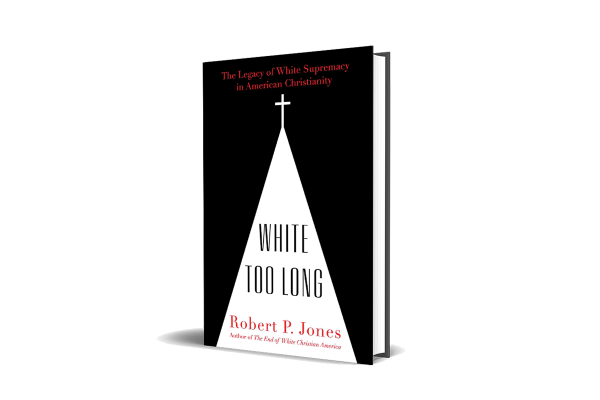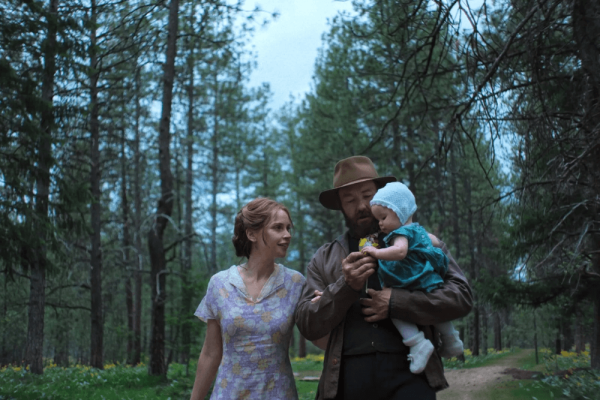Every nonfiction book is personal, often arising from some faint but persistent insight, a kernel of awareness that blossoms into a story that demands to be told. White Too Long began with a growing consciousness of the abiding presence of white supremacy within the faith we white Christians have inherited and live within.
I don’t mean, of course, anything as overt as white-hooded figures in the pulpit or the pews. Nearly all of our churches would be appalled by that — although we also quietly know that such a presence was among us in the not-so-distant past. I mean something at once less shocking and more insidious: how the centuries-long commitment to a social order that protected and nourished white lives at the expense of Black lives has disfigured American Christianity — especially the southern branch of which I’m a part — and what that means for us today.
If you grew up in the 1970s or later, you, like me, may have had parents who shielded you from the worst parts of the racism that was just everywhere, especially but not only in the South. Given the environment into which my parents were born — Jim Crow-era Macon, Ga. — it’s nothing short of miraculous that they were able to put significant distance between that world and their children. This required some uncomfortable, steadfast conversations with their own parents and others in my grandparents’ generation. I’m deeply grateful that my siblings and I saw this commitment lived out in how they treated African Americans who were in our social circles growing up — my dad, at work; my mom, at schools where she taught and we attended; and both of them among parents on the soccer field sidelines. I believe this gift created the possibility of seeing the problem, but only as the apostle Paul says, “through a glass darkly.”
White Too Long was an emotionally challenging book to write, but one I felt driven to complete as a way of opening the aperture, of coming to terms with my own faith and the role white Christianity is playing at this time of racial reckoning in the country. To put this in religious terms, it is my attempt to bear witness to the truth.
I’ve endeavored to locate myself concretely within this unsettling story: as a white Christian with Georgia roots who grew up in Mississippi as a Southern Baptist. As I’m sure is true for many of you, that world gave me a great deal. I wouldn’t be who I am without the role our local Southern Baptist church in south Jackson and two Baptist educational institutions, Mississippi College and Southwestern Baptist Theological Seminary, played in shaping me through early adulthood.
But as I’ve taken a closer look at the patterns of contemporary white Christian attitudes in the harsh light of our history, I’ve been deeply disturbed — and not just because my particular denomination, the Southern Baptist Convention, was literally born of the conviction that white ownership of Black people was part of the God-ordained social order. I’ve also been troubled because we white Christians, both Protestant and Catholic, have never really seriously wrestled with the implications of this legacy. Some of the things I’ve discovered along the way have been appalling, and many are hard to face.
While writing the book, I thought frequently about my visit to Germany during my junior year of college. I was struck by the Holocaust markers and the preserved concentration camps that memorialize the genocide that was fueled by anti-Jewish bigotry, a different incarnation of white supremacy that found support in white Christian theology and churches across the Atlantic. Those memorials stand not just to remember the victims but also to remind Germans of their own massive moral and religious failures as they embraced a fearmongering dictator who used notions of racial superiority and purity, legitimized by an amalgamation of Christian and nationalist ideology, to consolidate power and perpetrate unspeakable violence.
Their purpose is to witness to the truth, to remind contemporary Germans of how and where and why they went so wrong. Facing the Holocaust caused a great national and religious soul-searching in Germany, a process that has been painful, and certainly not perfect, but a step toward recovery from that period of Nazi insanity. A similar process has taken place in South Africa via the Truth and Reconciliation Commission in the wake of Apartheid.
But despite enslaving millions of African Americans, setting up a brutal system of racial segregation enforced by law and lynchings, and resisting calls for equality during the civil rights era and beyond — all sanctioned by white Christianity through countless acts of commission and calculated omission — no serious reckoning has taken place among us white Christians. White evangelical theology has hardly moved since we seceded from our northern Baptist brothers and sisters over the issue of slavery, at least not in a way that such waywardness on the issue of white supremacy would demand. We still lull our consciences with unreformed 19th century hymns, hear sermon after sermon after sermon emphasizing moral purity and a comfortable personal relationship with a white Jesus, and deploy Sunday school materials and church histories that paint a rosy picture of ourselves, where our version of Christianity is God’s means of bringing salvation to a lost world. We have not confessed our role in figuratively baptizing white supremacy into the fellowship of white churches, nor have we repented of the ways this unholy alliance legitimized white supremacy in the culture at large.
I’m hopeful that if we shed enough light on this troubling past, it might cast out the demons of willful amnesia in our present. If there’s a passage of scripture that has reverberated in my head as I’ve been writing, it’s this one, which was also the chorus of a youth choir anthem sung regularly at our church: “For you shall know the truth. And the truth will set you free.”
If we can muster the humility and courage and love to tell the truth, we just might, as James Baldwin so eloquently put it nearly 50 years ago, “end the racial nightmare, and achieve our country, and change the history of the world.” Because so much of the truth about our history remains repressed, I’ve tried not to pull any punches in my account of how this prior commitment to white supremacy has so thoroughly corrupted our faith. But I also trust it will be clear that this critique comes from a deep place of love and concern, and from a hope that we’ll all, myself included, find the courage to take the next steps to face our failures and find ways to repair the damage. This, of course, is simply what true repentance demands. And as the question of where white Christians stand on racial justice is once again being called in 2020, it is the only path toward liberation for ourselves and healing for our nation.
Got something to say about what you're reading? We value your feedback!






